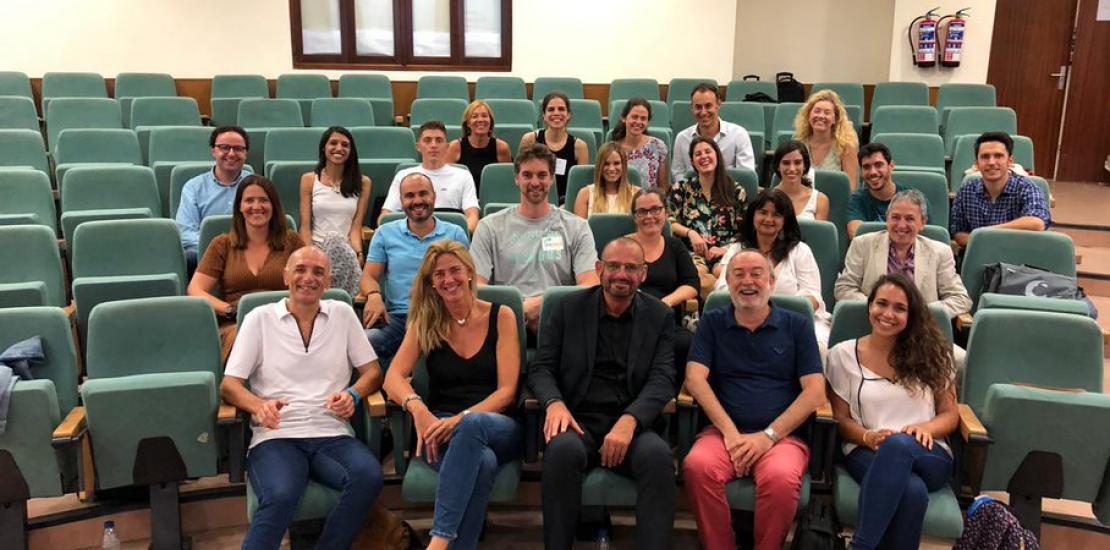UCAM collaborates with the Gasol Foundation to reverse negative habits caused by confinement in children
The "Pasos" study, which evaluated 2,892 children, confirms that between 2019 and 2022 there has been a deterioration in data related to the time they spend on physical activity, nocturnal rest, and the consumption of a Mediterranean diet
"The confinement measures caused by the COVID-19 pandemic have significantly affected the lifestyle habits of our children and young people and, as a result, their physical and mental health," emphasizes Pedro Emilio Alcaraz, director of the CIARD-UCAM, which has collaborated with the Pau Gasol Foundation in the development of the 'Pasos' study. The research has shown that, compared to the standards recommended by the World Health Organization, children now sleep less than recommended, eat worse, and engage in very little physical activity. It is the responsibility of everyone, including parents, educators, politicians, etc., to reverse this situation to have a physically and mentally healthier society.
The Catholic University of Murcia, through its Research Center in High Performance Sports (CIARD-UCAM), has coordinated the research in Murcia, Alicante, and Albacete, as well as in the first edition of the study in 2019.
The participating researchers have observed a deterioration in the lifestyle and health status of Spanish children and adolescents. In the psychological section, 32.2% of those interviewed reported feeling worried, sad, or unhappy, compared to 19.5% prior to the COVID-19 pandemic.
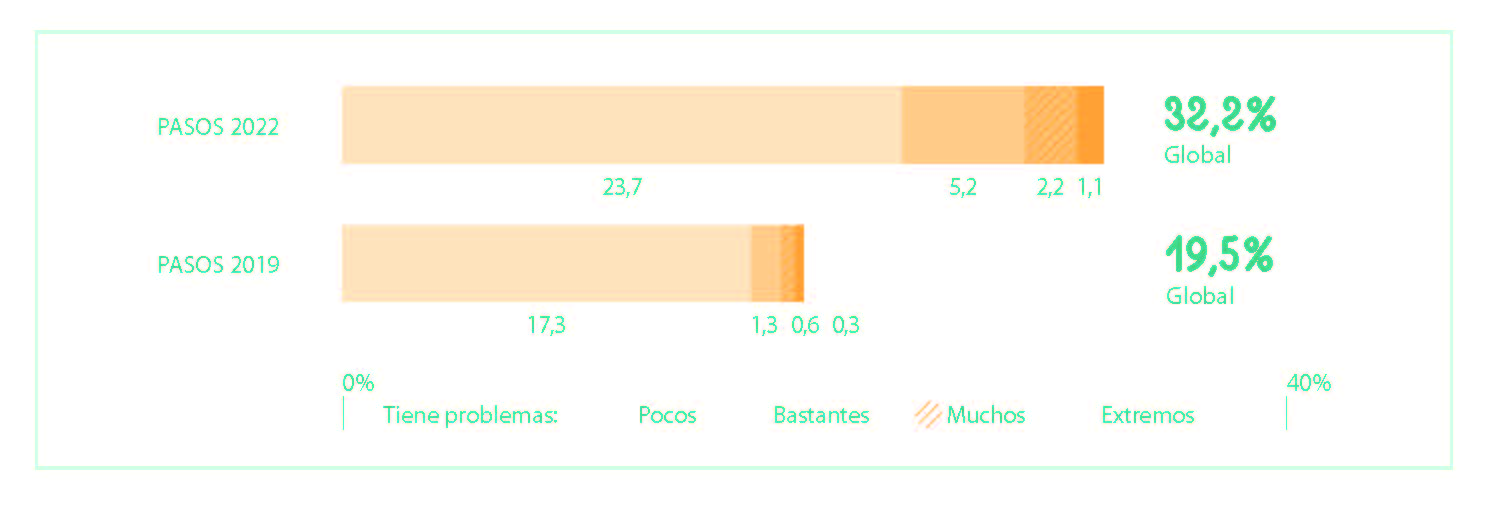
The time spent in front of screens and the reduction in physical exercise are possibly some of the triggers of this sadness. The study shows that children and adolescents increasingly fail to comply with the recommendation of daily screen time (120 minutes per day), which has increased by almost 10% during the week. This data raises concerns for the physical, psychological, and social health of society, as well as for cognitive and academic development throughout childhood.
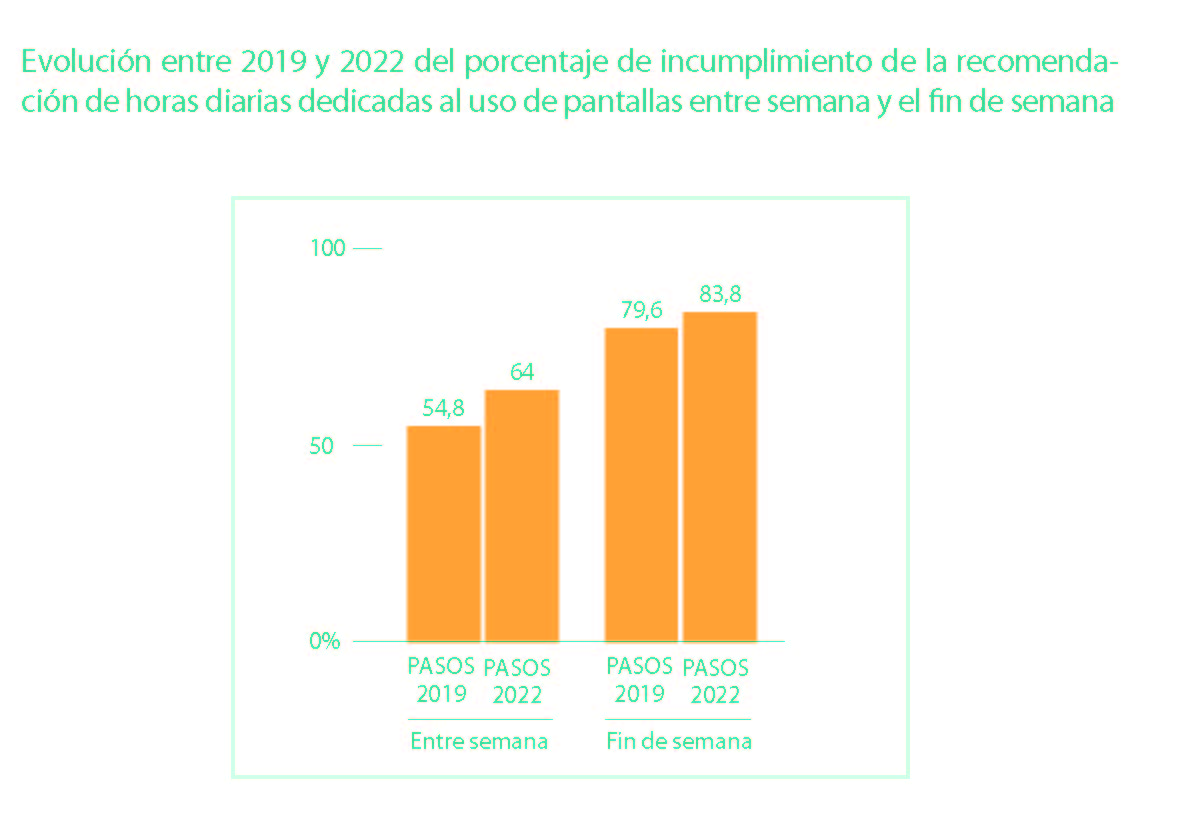
The population of children and teenagers who do not comply with the recommended hours of sleep for their age has increased by 5.8%.
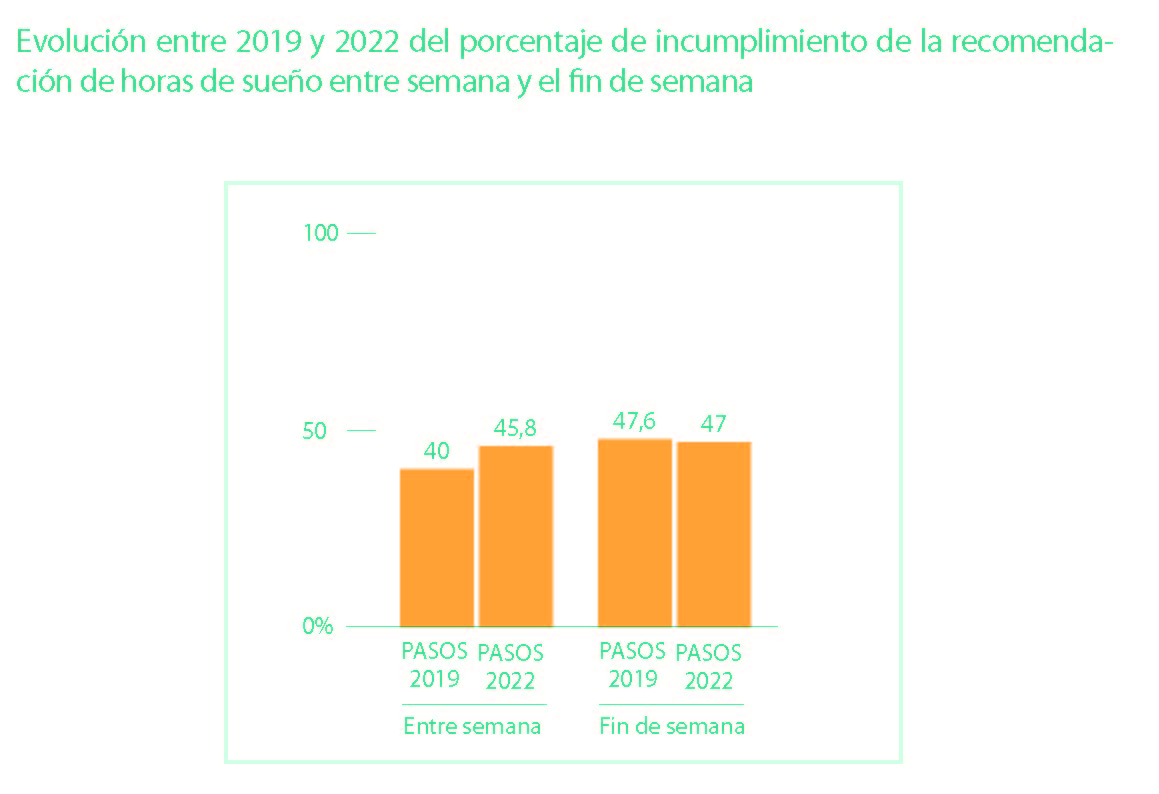
To these bad habits, the alarming percentage of children and teenagers who do not reach the minimum recommended 60 minutes of daily physical activity is added. This percentage has continued to increase and currently represents 70.6% of young people, 6.6% more than before the pandemic.
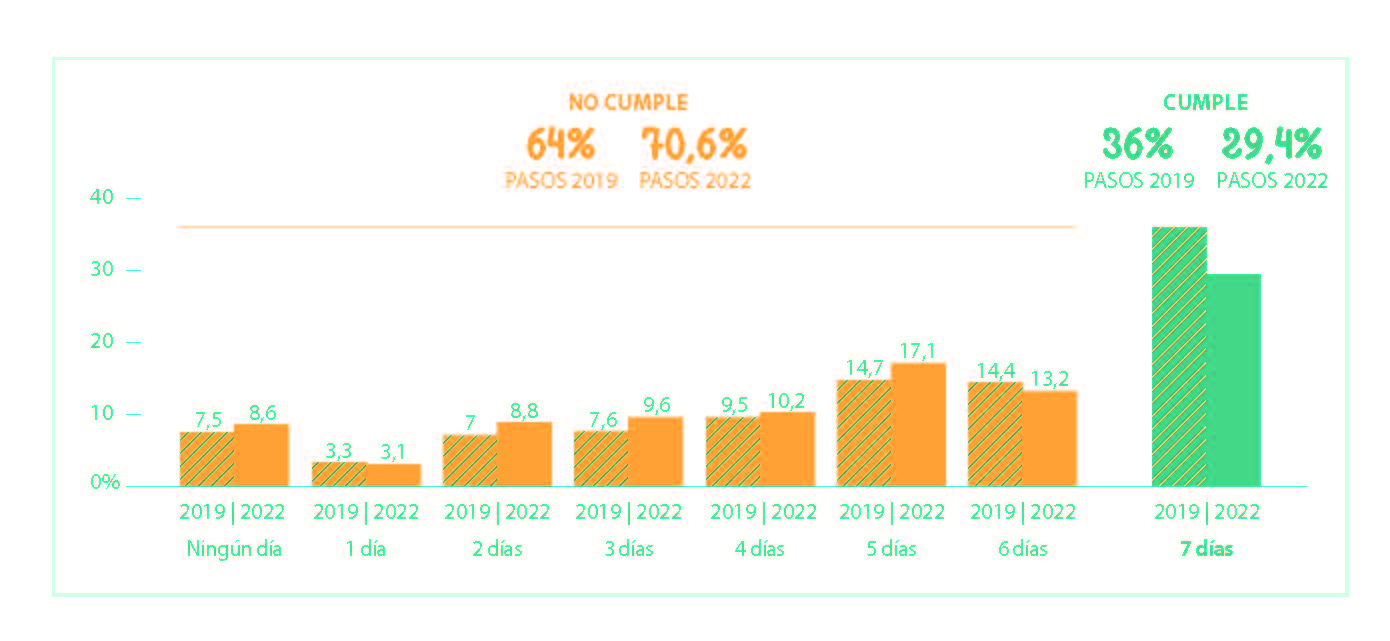
Regarding the consumption of the Mediterranean diet, there is an 8.3% increase in the child and adolescent population that presents a low level of consumption (12.1%) compared to the period 1998-2000 (3.8%), as reflected in the 'Enkid' study. In addition, the percentage of the population that had a high level of consumption of the Mediterranean diet has decreased significantly, decreasing a total of 8%.
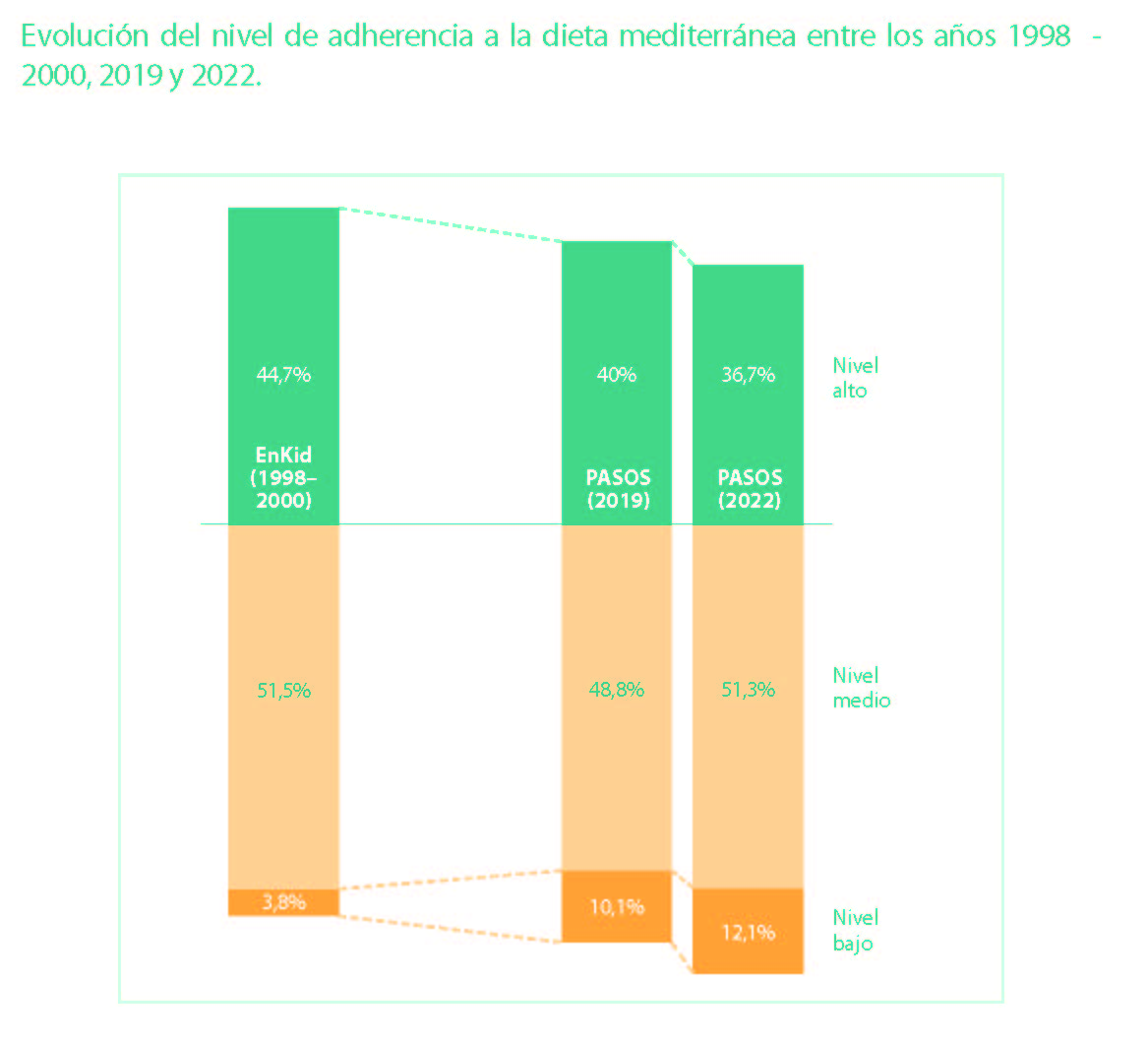
Despite the negative findings of the study, Pedro Emilio Alcaraz, professor of Sports Sciences at UCAM, highlights that this situation is totally reversible, among other things, with "appropriate policies to promote physical activity, with greater support from families in exercise practice, as well as increased control of screen use."




